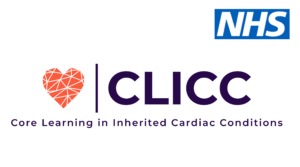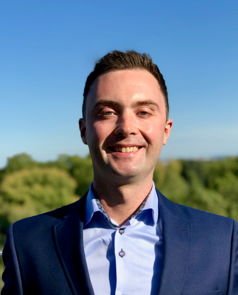 Session 3: Inherited arrhythmia syndromes
Session 3: Inherited arrhythmia syndromes
Co-chairs: Chris Miles and Liam Tobin
Tuesday, 26 April 2022
View the session recordings below.
Quiz / certificate
After viewing the recordings, try to answer the online quiz to generate a session certificate. You must correctly answer 4 of 5 quiz questions (80%) to pass. You may take the quiz as many times as you wish. You can review the correct answers by clicking the “View score” button after submission. At busy times, it may take up to 72 hours to receive your certificate. If you do not see it, please check your junk mail folder.
ICC education: Inherited arrhythmia syndromes
Session 3: Co-chairs - Liam Tobin, Guy’s and St Thomas’ Hospitals NHS Foundation Trust / King's College Hospital andChris Miles, St George’s NHS Foundation Trust
| Time | Topic / presenter |
|---|---|
| View recording | Welcome and introduction - Chairs |
| View recording | ECG phenotypes in ICC Dr Mark Specterman St George's Hospital |
| View recording | Electrical tests in ICC Dr Michael Cooklin Guy’s and St Thomas’ Hospitals |
| View recording | SADS and molecular autopsy Dr Greg Mellor Papworth Hospital |
| View recording | Post-mortem evaluation of sudden cardiac death Prof Mary Sheppard St George’s Hospital |
| View recording | Sudden cardiac death pathway Prof Elijah Behr St George’s University of London |
| View recording | Panel discussion (Led by co-chairs) |
| View recording | Brugada syndrome Prof Elijah Behr St George’s University of London |
| View recording | Long QT syndrome and CPVT Dr Rachel Bastiaenen Guy’s and St Thomas’ Hospitals |
| View recording | Devices for ICC patients Dr Jonathan Behar Guy's and St Thomas' Hospitals |
| View recording | Counselling a patient for ICD implantation Ms Soraya Nuthoo Guy’s and St Thomas’ Hospitals NHS Foundation Trust |
| View recording | Panel discussion (Led by co-chairs) |
Chris Miles

Dr Chris Miles PhD MRCP(UK) is a NIHR Clinical Lecturer in Cardiology and Fellow in Cardiac Electrophysiology and Devices at St George’s Hospital in London. He completed his undergraduate training at Imperial College London and the University of Bristol Medical School. He is currently undertaking a clinical lectureship and subspecialty training in electrophysiology and devices in the South London Deanery.
Chris was awarded a BHF Clinical Research Training fellowship in 2018 for his PhD investigating clinicopathological markers in inherited arrhythmic disorders. He has since published first-author original research papers in Circulation and the Journal of the American College of Cardiology. His research has led to several academic prizes, including the Young Investigator Award in Sports Cardiology, awarded by the European Association for Preventive Cardiology. He was also a finalist for the Young Investigator Award in Clinical Science at the European Society of Cardiology annual congress.
His interests include clinical electrophysiology, inherited cardiac conditions, sports cardiology, and complex cardiac devices. He is recognised by the International Board of Heart Rhythm Examiners (IBHRE) as a certified cardiac devices specialist (CCDS). Chris is also module lead for the St George’s MSc in Sports Cardiology and an expert member of the London Westminster Research Ethics Committee.
Liam Tobin
Liam Tobin has been a cardiac nurse since qualifying in 2004. He worked on CCU for 9 years after qualifying. From there he took on various roles as a nurse educator, arrhythmia clinical nurse specialist (CNS), inherited arrhythmia CNS and CCU ward manager. His current role is Lead nurse for Inherited Cardiac Conditions for both King’s College Hospital and Guys and St Thomas’ Hospital in London.
Liam returned to the field of ICC due to developing an interest in channelopathies and sudden cardiac death when working for four years as an Inherited Arrhythmia CNS. During his time as an inherited arrhythmia nurse he completed an MSc in Advanced Clinical Practice which included conducting a research study looking at the lived experiences of patients undergoing clinical screening following the sudden cardiac death of a first degree relative.

